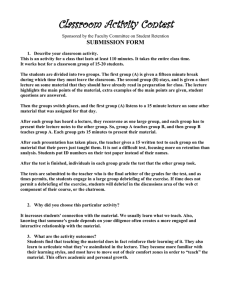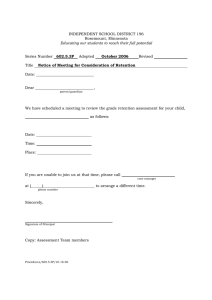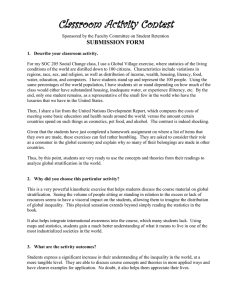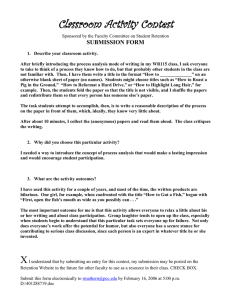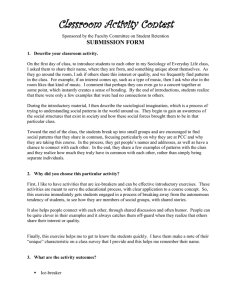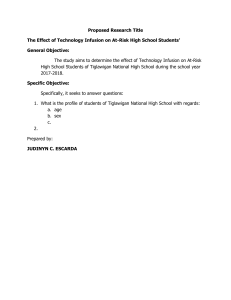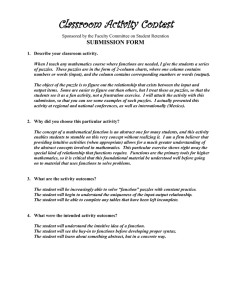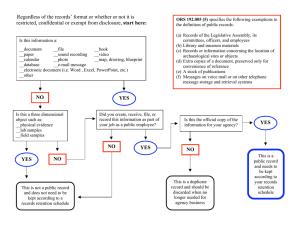Classroom Activity Contest SUBMISSION FORM
advertisement
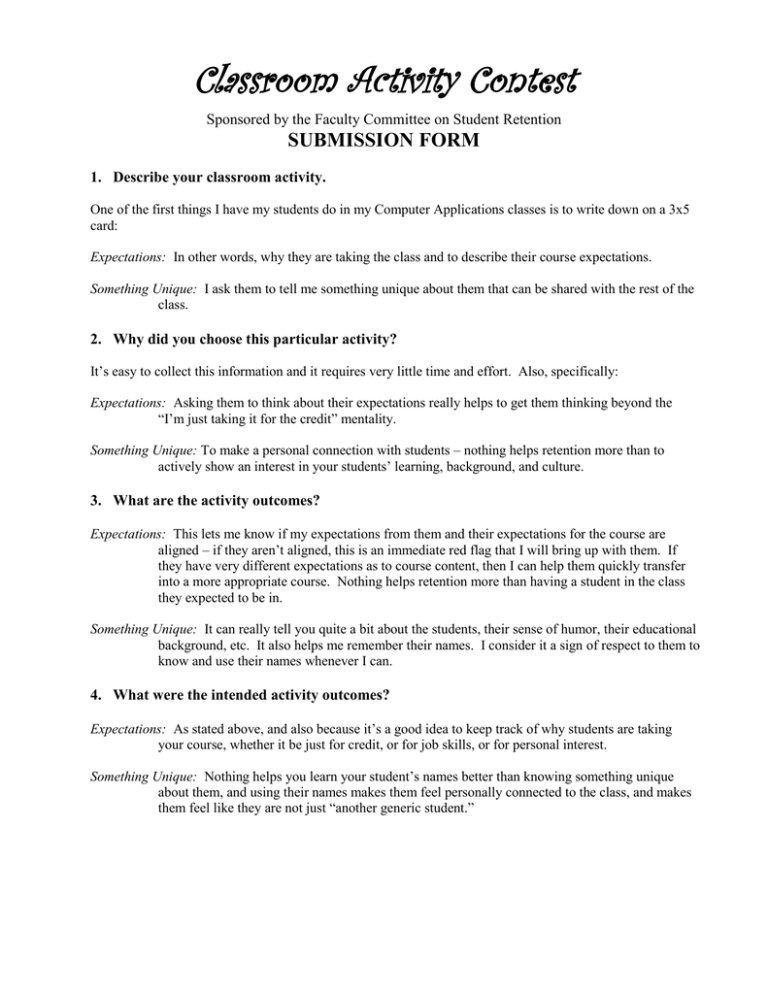
Classroom Activity Contest Sponsored by the Faculty Committee on Student Retention SUBMISSION FORM 1. Describe your classroom activity. One of the first things I have my students do in my Computer Applications classes is to write down on a 3x5 card: Expectations: In other words, why they are taking the class and to describe their course expectations. Something Unique: I ask them to tell me something unique about them that can be shared with the rest of the class. 2. Why did you choose this particular activity? It’s easy to collect this information and it requires very little time and effort. Also, specifically: Expectations: Asking them to think about their expectations really helps to get them thinking beyond the “I’m just taking it for the credit” mentality. Something Unique: To make a personal connection with students – nothing helps retention more than to actively show an interest in your students’ learning, background, and culture. 3. What are the activity outcomes? Expectations: This lets me know if my expectations from them and their expectations for the course are aligned – if they aren’t aligned, this is an immediate red flag that I will bring up with them. If they have very different expectations as to course content, then I can help them quickly transfer into a more appropriate course. Nothing helps retention more than having a student in the class they expected to be in. Something Unique: It can really tell you quite a bit about the students, their sense of humor, their educational background, etc. It also helps me remember their names. I consider it a sign of respect to them to know and use their names whenever I can. 4. What were the intended activity outcomes? Expectations: As stated above, and also because it’s a good idea to keep track of why students are taking your course, whether it be just for credit, or for job skills, or for personal interest. Something Unique: Nothing helps you learn your student’s names better than knowing something unique about them, and using their names makes them feel personally connected to the class, and makes them feel like they are not just “another generic student.”
